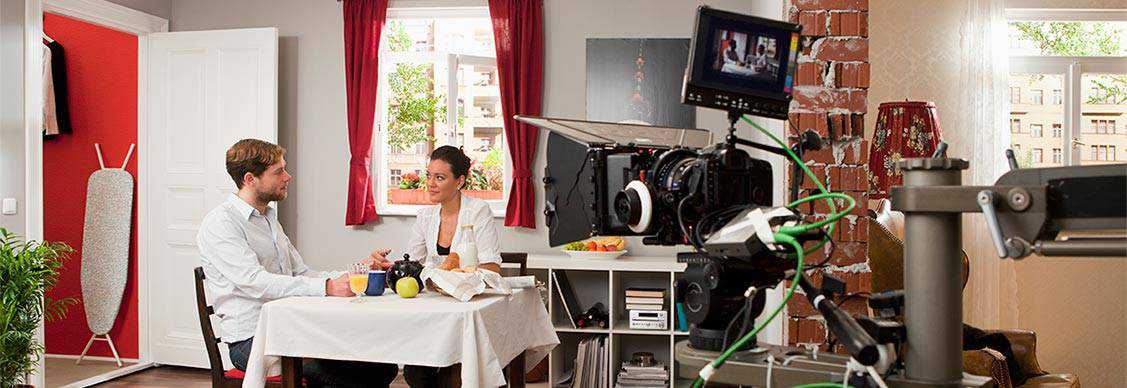Why the movie industry is a hot ticket for real estate investors

Image: Collected
From Hollywood to London, institutional investors are focusing on both the operation and the real estate of film studios.
Hackman Capital Partners and Square Mile Capital Management this year jointly acquired the Sony Pictures Animation Campus in Culver City, while also partnering with Raleigh Studios to manage Raleigh’s 10-acre campus in Hollywood.
Across the pond, Blackstone and Hudson Pacific Properties are jointly investing £120 million (US$164 million) in land just north of London as part of plans for a new £700 million studio facility. The move is the first outside of the U.S. for Sunset Studios, which has hosted both television series and feature films such as La La Land, When Harry Met Sally and Zoolander.
It’s more than just the big screen capturing the imagination of investors. The race to produce content among major streaming platforms, from Disney+ to HBO, is pushing up demand for studio space. Netflix alone is estimated to have released more original productions in 2019 than the entire TV industry did in 2005.
“From big screen to online – and despite all the various incarnations that the film industry has gone through over the years – the need remains high for a controlled environment to make content,” says Carl Muhlstein, international director based in JLL's Los Angeles office.
“Soundstage occupancy has consistently been at about 95 percent since 2015, and with the current online content boom, the scramble is on for studio space, spilling over into vacant industrial and retail boxes,” he says.
Systemic shift
The need for space is also reshaping a key metric for real estate investors: the length of leases.
In the past, leases on studios were relatively short, requiring intense asset management of a higher turnover of tenants compared to other commercial real estate sectors.
But the film industry is now moving towards leases lasting up to a decade and beyond.
“That’s definitely becoming more common as we see both traditional and streaming platforms seek out a place to be based and ensure access to soundstages for a growing roster of films,” Muhlstein says. “The industry has moved away from a seasonal approach.”
“And even when it’s downtime, they rent their vacant sound stages for photo shoots, live concert sessions, commercials or fashion shows and other filler activities.”
Hackman Capital Partners and Square Mile Capital Management this year jointly acquired the Sony Pictures Animation Campus in Culver City, while also partnering with Raleigh Studios to manage Raleigh’s 10-acre campus in Hollywood.
Across the pond, Blackstone and Hudson Pacific Properties are jointly investing £120 million (US$164 million) in land just north of London as part of plans for a new £700 million studio facility. The move is the first outside of the U.S. for Sunset Studios, which has hosted both television series and feature films such as La La Land, When Harry Met Sally and Zoolander.
It’s more than just the big screen capturing the imagination of investors. The race to produce content among major streaming platforms, from Disney+ to HBO, is pushing up demand for studio space. Netflix alone is estimated to have released more original productions in 2019 than the entire TV industry did in 2005.
“From big screen to online – and despite all the various incarnations that the film industry has gone through over the years – the need remains high for a controlled environment to make content,” says Carl Muhlstein, international director based in JLL's Los Angeles office.
“Soundstage occupancy has consistently been at about 95 percent since 2015, and with the current online content boom, the scramble is on for studio space, spilling over into vacant industrial and retail boxes,” he says.
Systemic shift
The need for space is also reshaping a key metric for real estate investors: the length of leases.
In the past, leases on studios were relatively short, requiring intense asset management of a higher turnover of tenants compared to other commercial real estate sectors.
But the film industry is now moving towards leases lasting up to a decade and beyond.
“That’s definitely becoming more common as we see both traditional and streaming platforms seek out a place to be based and ensure access to soundstages for a growing roster of films,” Muhlstein says. “The industry has moved away from a seasonal approach.”
“And even when it’s downtime, they rent their vacant sound stages for photo shoots, live concert sessions, commercials or fashion shows and other filler activities.”
Source: https://www.jll.com.au
Previous Story
- Fractory raises $9M to rethink the manufacturing supply...
- Global chip shortage hits Pakistan's automobile industry
- Electric Cars Are Splitting The Automobile Industry In...
- How the gas industry is trying to keep...
- Meet Baylor’s expert on fashion and the apparel...
- Science, industry team up in Italy to zap...
- COVID-19 pandemic contributes to booming business, major delays...
- SAP’s RISE Expansion to Include Industry-Specific Applications